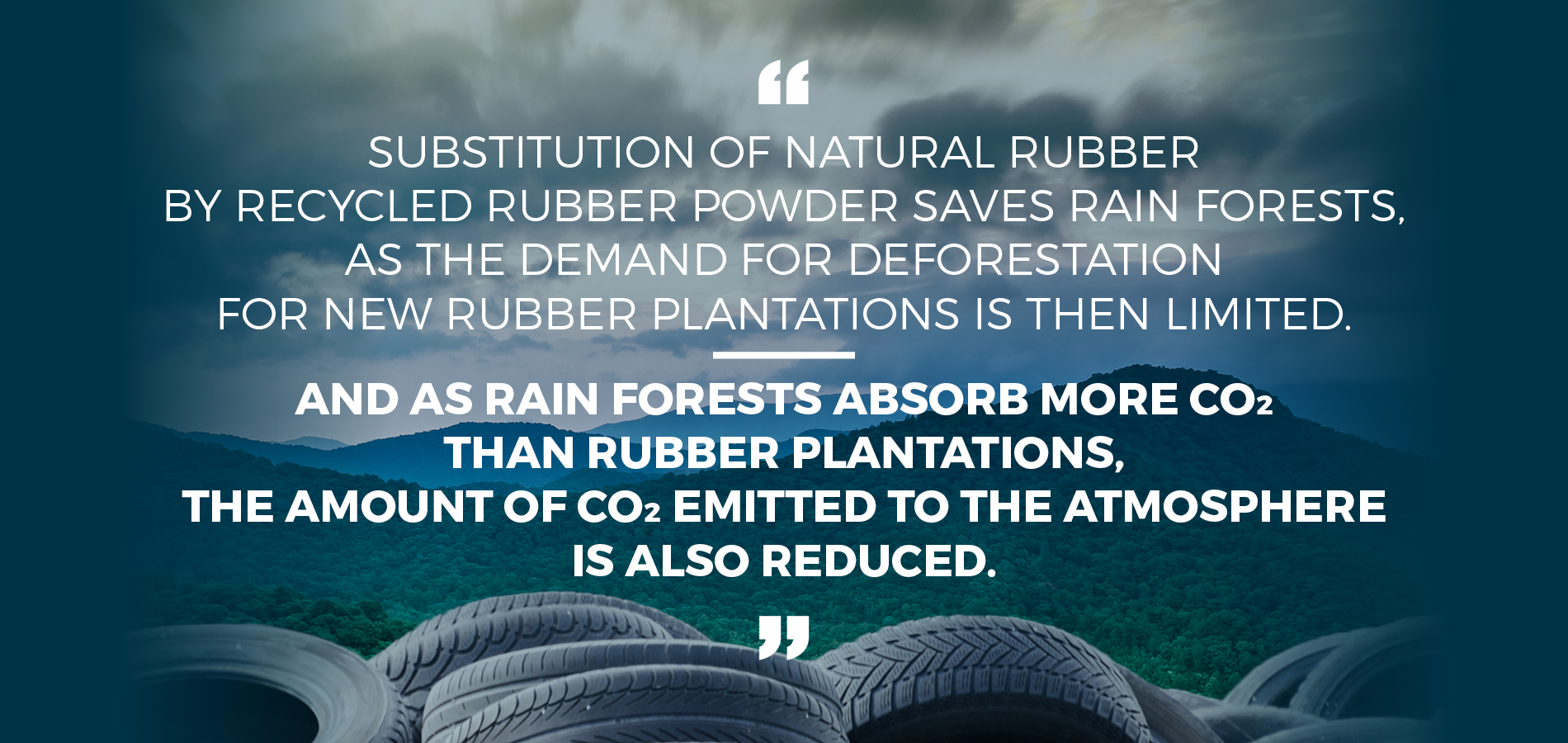ENVIRONMENT
RECYCLED RUBBER AND THE ENVIRONMENT
Recycled rubber from scrap tires is widely used in applications where it comes in direct contact with the natural environment. The most common examples are infill in artificial turf pitches and asphalt used in road construction. Numerous scientific studies in many different countries have analyzed the environmental impact of recycled rubber.
One major environmental concern has been the potential leaching of metals and organic chemical substances from recycled rubber into drainage water and water recipients. Special attention has been drawn to zinc, PAHs and dissolved organic carbon. There is no evidence to support claims that leaching of chemical substances from infill and e-layers used in artificial turf causes environmental problems.
In comparison with the incineration of used tires in cement kilns, tire recycling – processing used tires into rubber granulate and steel as substitutes for virgin raw materials – offers substantial environmental benefits. Life Cycle Assessment studies document that significantly less CO2 is emitted to the atmosphere, and the negative impact on the atmospheric acidification is significantly lower. Tires contain sulfur, which is used in the vulcanization process. During incineration, sulfur vaporizes, causing acid rain. When tire rubber is recycled, sulfur is contained and therefore not released into the atmosphere.
It is, however, of paramount importance that recycled rubber is produced in a high quality – and made from known and consistent source material. Many rubber recyclers mix all kinds of scrap rubber, resulting in a recycled product that is not uniform or pure. Genan recycled rubber is made from scrap tires only – and is subject to strict and thorough quality controls.

Genan Inc.
18038 Beaumont Hwy.
Houston TX 77049
Phone: +1 713 674 8500
E-mail: info-us@genan.com
– Striving for a sustainable future!

